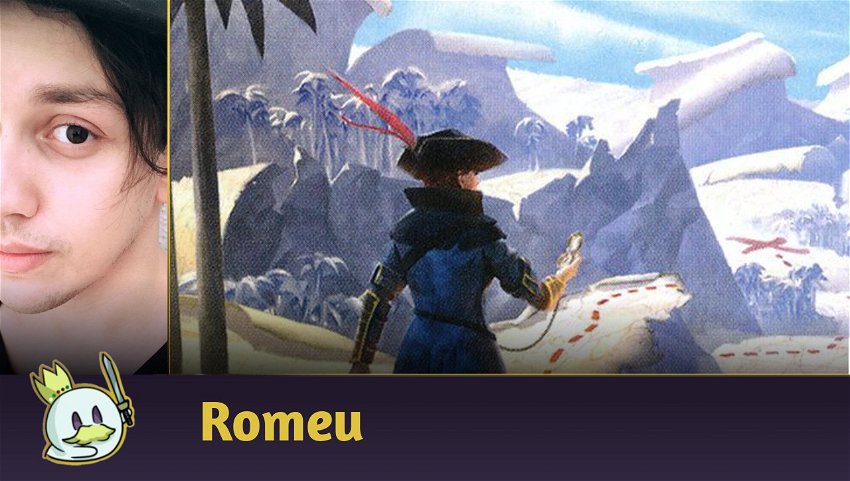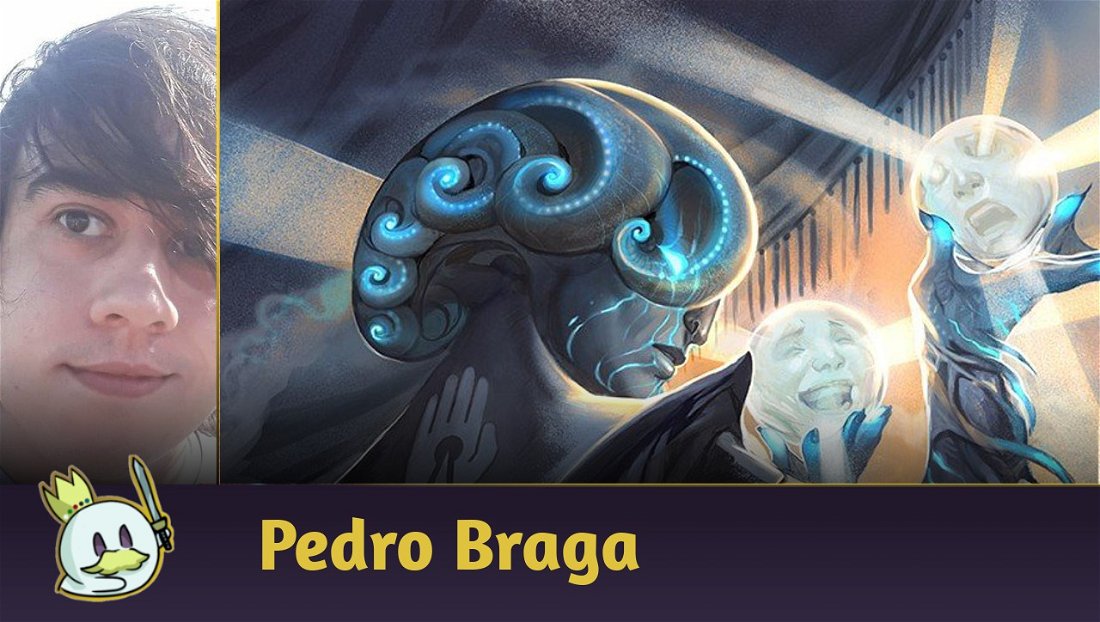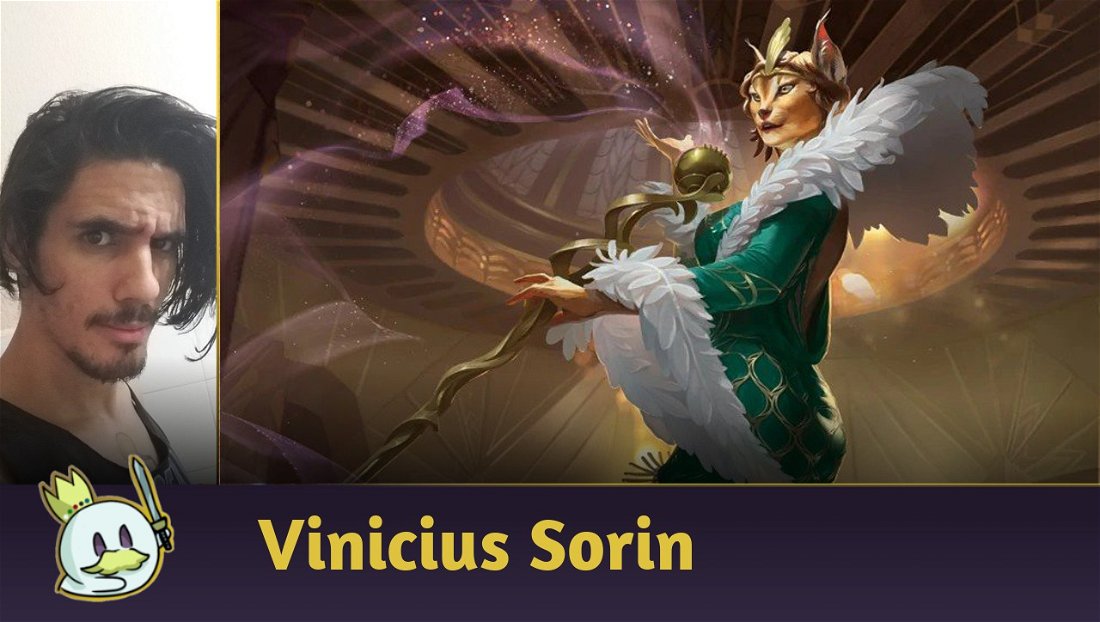Introduction
One of the biggest dividers of the Magic: The Gathering community is the nature that a product that mixes competitive card game with collectible product creates around its secondary market, where the increasing demand increases substantially the values practiced by the offer in the singles markets. When a format grows, gains evidence, or becomes widely sought after by the community, prices go up. It is a logical consequence of a product meant to be sold, the natural flow of community decisions or Wizards of the Coast itself to give greater or lesser relevance to one format or another.
Ad
We could see how Commander Staples prices simply jumped up after the format became popular. We watched Pauper prices increase when it was officially sanctioned by Wizards and after community interest grew over the past few years, and finally, we could see how some Pioneer prices grew significantly after the Organized Play announcement, which put it in the spotlight, being the main format of the Qualifiers and the Pro Tour itself, and causing the values of short and long-term Staples to increase to skyrocket. It's important to note that this event is by no means exclusive to this moment, and Modern had the same effect on the price of Shocklands, Tarmogoyf, Vendilion Clique and other cards when it was announced.

Consequently, the format's price hike has meant a departure from a portion of the community towards it by raising Pioneer's entry barrier to levels that many players are not willing to go. Pioneer, for that player, was a "refuge" where his Standard cards could be used after rotation and, with the spike of several old and recent Staples, the Standard player no longer has the same interest in migrating from a format to the other, often for the same reason a Pioneer player doesn't try to migrate to Modern: the price tags.
Prices have increased, now what?

Magic is an expensive game. It's impossible to deny it, and I have no intention of making any subjective value judgments about what is right and wrong in a supply demand relationship. Magic's secondary market is predatory and definitely no one, whether retailer or player, wants to miss out on a good financial opportunity.
However, there is a general dissatisfaction with Pioneer's direction after these recent spikes, and it is this part of the community that I will be trying to address in this article by presenting an alternative that can be economically efficient for players who want to experience an eternal format that has the same good availability of cards that Pioneer has, but without having to deal with recent spikes, or without having to spend hundreds of dollars on a decklist.
Normally, the ideal would be to make some budget lists that players can use to build to enjoy the format, but there will always be a crucial flaw in this reasoning: The best possible budget list will hardly be able to beat a well-structured Tier 1 deck, and this can generate a negative experience for the player who will eventually lose interest in basically having an average to bad result in their local store tournaments. So, it's necessary to adapt the rules to that player's financial reality.
It is natural, in this occasion where someone wants a more accessible format, to recommend this player to try out Pauper, especially since it is a world-renowned format, with an extremely solid community and a loyal player base. No matter where you are, there will always be somewhere you can play Pauper. But there is always the possibility that player is tired of playing Pauper, or it simply doesn't appeal them as a format.
Ad
About Alternative Formats
Which consequently leads us to alternative formats: in Magic, there are dozens of formats created by the community. Some become popular, others fail miserably in whatever their purpose may be. Some examples of alternative formats are Old-School and Premodern, which allow players to try formats only with older releases, while here in Brazil we have the example of Commander 500, which seeks to limit the maximum value that a Commander deck can have to play with, with a conglomeration of rules to make that format a viable option.
Recently, I've seen moves by a part of the Pioneer community to popularize an alternative to the format that makes it significantly more accessible, Pioneer Artisan — A variant where only common and uncommon cards are legal, similar to the events that usually take place on Magic Arena's Midweek Magic.
After playing some games in the format, it seemed interesting enough to be a suitable alternative to implement in communities and local stores, especially for players who want to build decks in an eternal format without the same difficulty existing to obtain some Pauper staples, while also providing a unique game development opportunity from an alternative format.
Today, I intend to go deeper into this format, presenting its main points, banlist, its pros and cons and how we can also use it as a basis for the new MTG Arena format, Explorer.
What is Pioneer Artisan
In case you're not familiar, the Artisan format is occasionally practiced at Magic Arena's Midweek events, and encompasses the exclusive use of common and uncommon cards, excluding any rare or mythic rare cards from the sum.
Pioneer Artisan is an adaptation of this format for the tabletop, where instead of using the confusing rules that Historic Artisan would have, the rules established in Pioneer are used to define the card pool limitation to make the format affordable and highly available for most of your cards in local stores or large marketplaces.
As with Pauper, rare cards that have been reprinted as common or uncommon in a tabletop set (such as Ultimate Masters or similar) are legal in Pioneer Artisan, meaning the following originally rare cards are legal in the format:
Any other later reprints that fall into this category will also be legal in the format.
Is there a banlist for Pioneer Artisan?
Pioneer Artisan's banlist was originally a direct port of Magic Arena without much testing, and now a small committee has been looking to test environments where there are no banned and restricted lists to assess which ones really deserve to be banned or not.
Ad
The following cards are currently banned for standing out too much compared to the rest of the format:

In addition, the format also has a Watchlist, that is, a list of cards that are being monitored at local events and in the committee worksheet to evaluate their performance in improving the winrate of their respective archetypes:

While Gates Ablaze, Zenith Flare, Persistent Petitioners and Cauldron Familiar are on the watchlist for being part of Artisan's original banlist, and are being properly tested to assess whether they really need banned or not, Prosperous Innkeeper and Deadly Dispute are cards that are making a huge difference in two very popular and powerful archetypes in the format: Rakdos Sacrifice and Selesnya Lifegain, and their removal would make their archetypes more fair without, specifically, making them unfeasible for the competitive scenario.
Future banlist discussions, as the format grows, will be evaluated based on the results of local event reports, as well as community discussions on Reddit that aim to analyze the general sentiment in the community about a particular card or strategy that appears to dominate the tournaments.
Decklists by Pioneer Artisan
Below, I present the decklists of the archetypes that can be considered the main decks of the format today.
Rakdos Sacrifice
Rakdos Sacrifice essentially follows the same pattern as its Pioneer variant, but with a significantly smaller interaction package, being integrally focused on the interactions between its sacrifice engines between Cauldron Familiar, Witch's Oven, Oni-Cult Anvil and Mayhem Devil.
Selesnya Auras
Selesnya Auras seeks to utilize hard-to-remove creatures, either through Hexproof like Gladecover Scout or through effects that make them indestructible, like Adanto Vanguard, to establish a "voltron" plan, where you stack a series of enchantments under a creature, making it significantly larger than the rest of the battlefield.
Selesnya Lifegain
Selesnya Lifegain works towards “go big” Aggro, with life gain triggers from Prosperous Innkeeper and Lunarch Veteran significantly increasing the power of Ajani's Pridemate and Trelasarra, Moon Dancer, while also taking advantage of Clarion Spirit to significantly increase the board position each turn, while Lead the Stampede allows the player to keep the gas running
Dimir Rogues
Dimir Rogues is a Tempo Deck that seeks to use mill to power up cards like Soaring Thought-Thief, Into the Story and Drown in the Loch while holding the game with removals and counterspells, allowing you to play both proactively and reactively and, in most cases, operating entirely on your opponent's turn.
Ad
Azorius Ensoul
Like its Pioneer version, the Azorius Ensoul runs low-cost artifacts alongside powerful power-ups such as Ensoul Artifact and All that Glitters to create a fast and efficient clock capable of winning the match in few turns, while also managing to establish some value and card advantage with cards like Ingenious Smith, Curious Obsession and Roadside Reliquary.
Azorius Flyers
Similar to what the Spirits deck proposes to do, Azorius Flyers is another Tempo deck that uses a huge amount of evasive creatures to win the game with the inclusion of lords like Empyrean Eagle, and a powerful and efficient surprise factor with Rally of Wings.
Mono-Blue Tempo
Like the deck above, Mono Blue Tempo runs evasive threats and a fast clock to establish your game while delaying your opponent's play with bounces and counterspells.
Mono-Black Aggro
Mono-Black Aggro works as partially geared towards gaining value through death triggers, with Eyetwitch, Shambling Ghast and Archfiend's Vessel serving as the perfect sac outlets, while Malakir Rebirth and Call of the Death-Dweller reanimate them for even more value, while removals like Fatal Push collaborate to keep the board clean long enough to end the game.
Mono-Red Aggro
The classic Mono Red Aggro couldn't be out of the fashion of most red deck strategies: taking the opponent's life total from 20 to 0 in the fewest turns possible.
For that, Red Deck Wins relies on the use of 16 low-cost threats alongside more than 20 ways to deal direct damage to the opponent, or keep the other side of the battlefield clean.

In addition to these decks, several other strategies such as Gates, Golgari Adventures, Rakdos Pyromancer, Boros Heroic, Dimir Control, Izzet Drakes, among others, are competitively viable for the format, fitting into the Tier 1.5 category, in addition to countless other archetypes, including combos like All Spells and Retraction Helix, which have potential but haven't been properly tested yet.
Pros and Cons
Pros
One of the questions I had when I was introduced to Pioneer Artisan was “why play this format instead of Pauper?”, and one of the current members of the committee gave me a convincing enough answer: not only is Pioneer Artisan a format (mostly) more accessible regarding card availability and prices than Pauper, the uncommon cards bring a game dynamic that differs from Pauper's nature in many situations, with strategies and characteristics that are typical of the format and with a lot of room for exploration and innovation, and new releases will always bring cards that can significantly impact its Metagame, a task that not every Standard-oriented set can achieve in Pauper.
In addition, from the point of view of retailers and event organizers, Pioneer Artisan offers a good opportunity to provide an affordable gateway to tournaments in your local community, with the potential for significantly increased singles sales on commons and uncommons of recent releases and players joining tournaments.
Ad
This is significantly important for countries that have a huge demographic area, as in Brazil, and especially for stores where the community doesn't have as much engagement outside the casual audience due to the low consent of players interested in investing large amounts of money in a deck.
In other words, Pioneer Artisan offers a good way to present in an accessible way and with greater availability of singles, and with a Metagame with individually powerful cards or with fun interactions, a competitive scenario in small or medium-sized communities.
Cons
On the other hand, the biggest issue with Pioneer Artisan (apart from the lack of unified consensus on points such as legality, banlist and even the format's name) is that it tries to emulate the strategy of two different formats (Pioneer and, to some extent, Pauper) without having an attractive factor of its own, as is the case with the other two formats: The reason for its existence is, basically, the financial factor. If you remove that price tag from the equation, there's simply no reason to really draw a player into the format because it lacks the charm or competitive appeals that move it forward and establish any interest from larger communities.
Because it is a format focused and managed by the financial issue, Pioneer Artisan has its potential (and reach) limited for players who don't have concerns about this restriction, or even prefer the presence of Pauper as a “budget” format, being known worldwide and which is officially supported by Wizards of the Coast.
Thus, the greatest challenge for its community and management is establishing these other points of interest for players from outside communities. Create an environment that makes the Pauper player interested in playing it as a more fun option, create challenges that make the Pioneer player wonder if they shouldn't try to play a more “static” version of their favorite format.
Failing that, the format will be forever tied to financial need and, consequently, its success will only be represented in small local communities of players who are not interested in investing large amounts of money in Magic: The Gathering, making it a casual format. And as a casual format, Pioneer Artisan definitely doesn't have what it takes to compete with Commander which, despite covering a proposal that differs from a 1v1 game, establishes itself as the main attraction for players who they want to relax and play in an environment where it is possible to create a sense of equity among everyone present at the table, according to the conversation between the players before the match.
That is, to succeed, the organizers will eventually need to consider where the format can differ from the sanctioned budget format (Pauper) and from the most known casual format in the world (Commander), and effectively handling these points so that Pioneer Artisan has its own attractive charm to players from different communities.
Pioneer Artisan and Explorer
Wizards recently announced the Explorer format for Magic Arena, which will essentially become Pioneer as new bundles and releases bring cards that aren't already on the digital platform, and you can check out all about this new format on my last article.
Ad
However, one of the main negative points of Magic Arena is its economy, which is not very rewarding without a high investment of time and/or money, often limiting the number of decks that can be built due to the low availability of rare and mythic Wildcards that a regular player can have.
In this sense, it is possible that Pioneer Artisan will collaborate so that players can find functional lists without a high level of Wildcards investment to take advantage of the new eternal format on the digital platform. Especially if, by some chance, these lists can be later improved to more robust versions with rare and mythic cards as the player wins games and knows their list strategy better.
As promised in the previous article, I intend to bring some budget deck options to Explorer to give Magic Arena users a guide on where to start enjoying the new eternal format, and Pioneer Artisan definitely collaborates to craft a suitable foundation for these lists, even if later some rare cards need to be added.
In addition, “Explorer Artisan” (while Pioneer is not yet official on the digital platform) also sounds like an attractive proposal for small and medium-sized online events whose objective is to create an environment where anyone can participate, even that doesn't have a Top-Tier decks because they require numerous rare cards.
Conclusion
That's all for today, and I'd love to hear your views on this alternative to playing Pioneer without facing the difficulties that recent price increase have imposed on players.
Do you believe the format can succeed in your community, or is it not attractive enough for players to be interested in building decks and playing tournaments?
Does the economic factor for a game that is already naturally expensive matter, or is it just a drag that shouldn't be mitigated by creative means?
Does Pioneer Artisan offer a way to captivate a portion of your local community to want to play tournaments, or does it not have any factors justifying the investment of availability and time in your local store?
You are welcome to leave your opinions and conclusions in the comments, and thanks for reading!







— Comments0
Be the first to comment